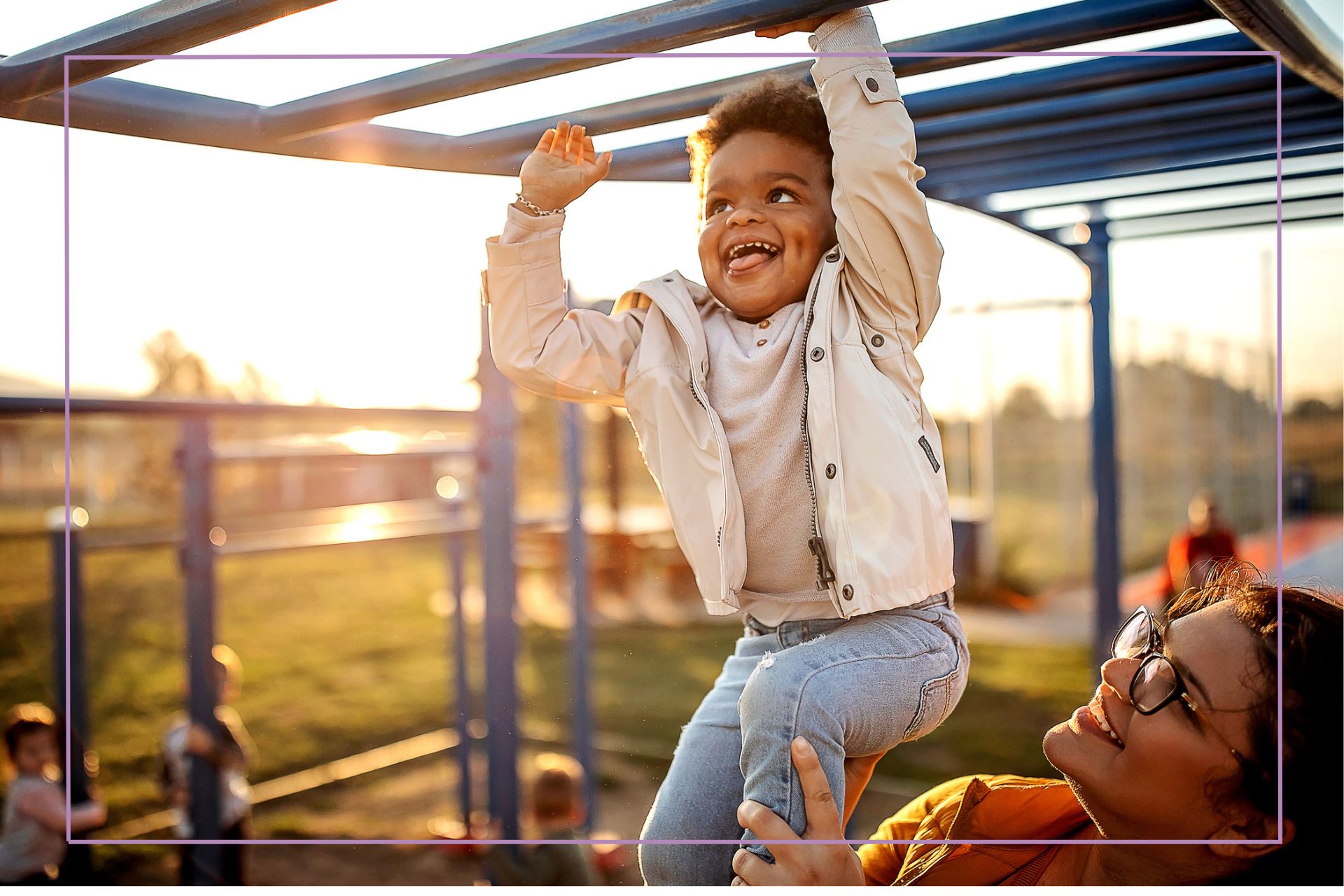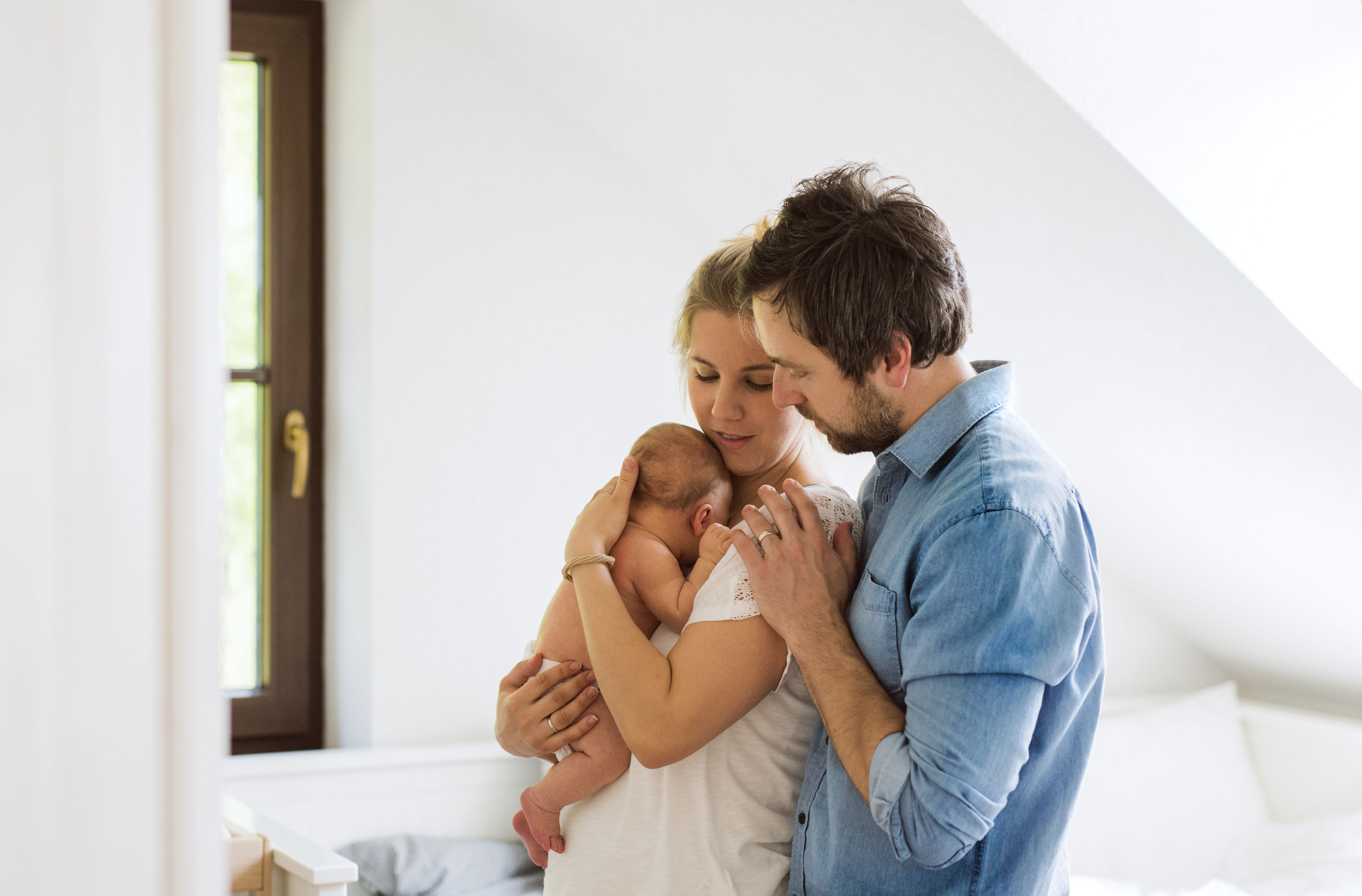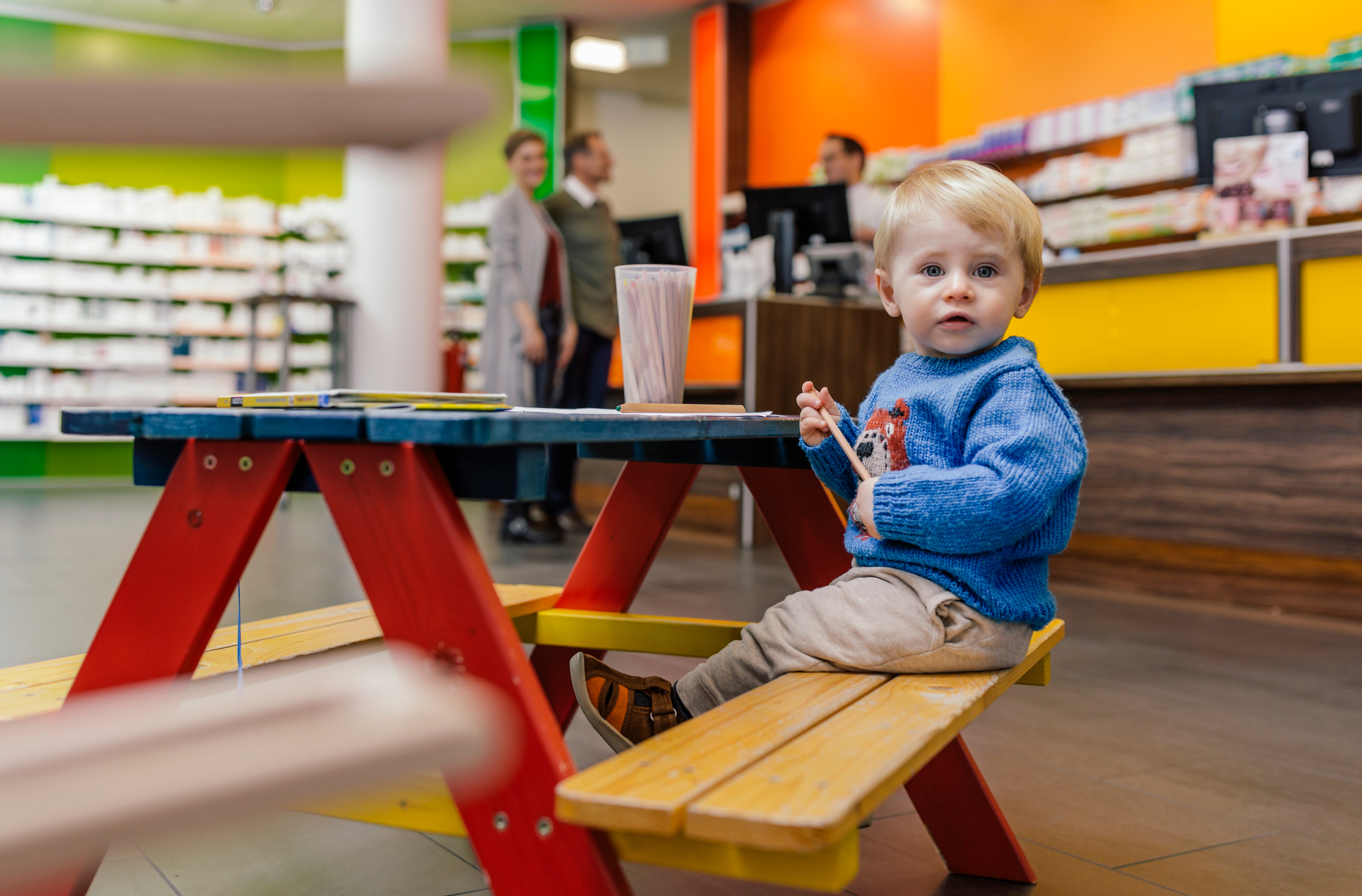What is a 'helicopter parent'? What it looks like, why you might not want to become one, and the five ways it affects kids
The term 'helicopter parents' is in the Oxford English Dictionary but what does it really mean and are you one?

Confused about how to be an involved parent without being overbearing? Here's how to tell if you're a helicopter grownup and what you can do to help you stop the hovering.
Parenting styles are often widely debated, as they can range from the strict methods of tiger parents to the more relaxed permissive parents and therapeutic parents, among others. It's worth noting that there is no one way to raise a child and every family is different. The term 'helicopter parent' was first used in Dr. Haim Ginott's 1969 book Between Parent and Teenager by teens who said their parents would hover over them like a helicopter. A 2018 study, published in American Psychological Association, found that children with helicopter parents are more likely to have behavioural problems and could struggle at school as a consequence.
If you want to know what helicopter parents are and whether you are one, you've come to the right place. We’ve spoken to a team of experts to dissect the term and answer your questions.
What is a helicopter parent?
'(often disapproving) a parent who pays extremely close attention to their child's education, problems, etc. Often making decisions for the child.' - this definition is from the Oxford English Dictionary - the term was added in 2018.
Parenting expert and director of Parent 4 Success, Elizabeth O'Shea explains: "It refers to a parent who kind of hovers over their child and tries to micromanage their child's experiences in life so that they don't have to suffer any difficulties."
According to Emma Citron, a consultant clinical psychologist, helicopter parenting is: "Over-vigilance and over-observance or involvement in the life of your child actually to their detriment."
Katharine Hill, director of the charity Care for the Family, thinks the helicopter analogy is a really good way of trying to visualise how intrusive a helicopter parent can be. She tells us; "The analogy of the helicopter is quite good really, in that it is an overprotective parent. So, a mum or a dad that are hovering overhead, playing close attention to their child's every need and they swoop in always to prevent catastrophe and to help them with things and they don't allow them to learn things the hard way."
Parenting advice, hot topics, best buys and family finance tips delivered straight to your inbox.
All three experts stress that in almost every case, helicopter parents are acting out of pure love and a desire to do the best for their child – they just take it a little too far.
Elizabeth said: "The silly thing is, I see a lot of parents that I would describe as helicopter parents and they are the nicest, kindest, loveliest people. It is a natural extension, when you have children, if you look into your newborn's eyes you want to be the best parent you can be."
She explains that often helicopter parents are overcompensating. This may be because the child was very wanted and perhaps conceived through IVF. They might be trying to give the child the upbringing they didn’t have or maybe the child has a serious illness or the parents have decided to split.
All of these scenarios could lead to a parent trying to offer too much protection and applying too much control.
When do the behaviours of helicopter parents start to show?
Elizabeth explains that while you cannot be a helicopter parent before birth, some couples are overly anxious and cautious during pregnancy. These couples are likely to continue these behaviours post-birth.
Helicopter parents tend to worry about leaving their child with anyone. Elizabeth said: 'They feel that they are the only people who can care for their child properly so even leaving the child with relatives can be quite traumatic for them.
'If a mum is a strong helicopter parent, she will struggle to leave the child with the dad.'Emma added: 'It is harder to be what you might call emotionally abusive or controlling of toddlers because they don't express wishes of their own as such. What they do do is have a right to play and not to have parents being over-protective.'
She says children have the right to play on age-appropriate equipment, to socialise with a mix of different children, and to experience different environments.
Emma revealed: 'I came across a youngster - you won't believe it but it is true - entering nursery whose parent, I think it was the mother, had sewn bubble wrap into the inside of the child's trousers in an attempt to prevent any bruising or damage to that youngster's knees.'
For Emma, this kind of behaviour is just 'wrong', she explained: 'Nobody is saying don't supervise your youngsters, quite the opposite. But, you know, sit back sensibly and keep a watchful eye but also let them do things appropriate for their age.'

Emma added: 'It is harder to be what you might call emotionally abusive or controlling of toddlers because they don't express wishes of their own as such. What they do do is have a right to play and not to have parents being over-protective.'
She says children have the right to play on age-appropriate equipment, to socialise with a mix of different children and to experience different environments.
Emma revealed: 'I came across a youngster - you won't believe it but it is true - entering nursery whose parent, I think it was the mother, had sewn bubble wrap into the inside of the child's trousers in an attempt to prevent any bruising or damage to that youngster's knees.'
For Emma, this kind of behaviour is just 'wrong', she explained: 'Nobody is saying don't supervise your youngsters, quite the opposite. But, you know, sit back sensibly and keep a watchful eye but also let them do things appropriate for their age.'
How is the child affected if they have helicopter parents?
- Under-developed coping skills
- Lower confidence levels and self esteem
- Increased anxiety
- Sense of entitlement
Children with helicopter parents are more likely to suffer from mental health issues and are more likely to be anxious about doing things independently.
Elizabeth says these children are likely to be fussy eaters, she explains: "As soon as the child spits something out or doesn't want something, helicopter parents tend to pander to that and feel that their job is to find something the child likes. So even when the child is reduced to eating three, four, or five things the parent will continue to provide just those five things rather than introduce new foods to the child."

Children with helicopter parents are often more entitled. Elizabeth warns that they are ‘likely to be the future flatmate from hell’ because they will never have had to contribute to everyday chores and will be ill-equipped in basic life skills.
Katharine recalls one example of a girl who went off to university and had no idea how to catch a bus because her parents had driven her everywhere. According to Emma, children with helicopter parents struggle to make their own decisions and are very dependent on their parents, which is incredibly detrimental.
She explains: "Nobody knows for sure in their lives if any decision they make is a good one, but we have to be allowed the chance to try and sometimes to fail. If parents think they know best and that their way is the only way and they are going to mastermind everything their child does, it's terrible."
Although the consequences are mostly negative, Katharine stresses that the child knows they are loved and that their parents are not indifferent to him or her.
Are certain people more likely to become helicopter parents?
Mums are usually the helicopter parent but it could be the child’s dad or grandparent – whoever the child’s predominant carer is.
Helicopter parents are more commonly from the middle-classes as they have the time and resources to pander to their child. However, Elizabeth says it is possible at any end of the socio-economic spectrum.
Parents who have mental health issues of their own are more likely to be helicopter parents, and adults whose own parents were very controlling often transfer this over-protective technique onto their own children.
Are there more helicopter parents than ever?
All of the experts agree that discussion and awareness of helicopter parenting has risen but that the actual number of parents is too tricky to quantify.
Katharine believes that social media could be making more parents develop helicopter tendencies as they are tracking other people’s children and other parent’s progress.
She said: 'I think social media has been an eye opener… Everybody puts on Facebook or other social media outlets their show-reel, their best bits rather than the real stuff and some parents compare themselves with others.'
Tips to avoid becoming helicopter parent:
- Trust your children: give them age-appropriate responsibility
- Think long term: imagine your kid as an 18-year-old and build skills for that
- Give your kids space to solve their own problems
None of the experts suggest you should let your children run loose. Instead, try to step back and think about how much influence and control you really need to exert. Katharine stresses the importance of valuing your child’s character over other measurable qualities that might be compared on social media, such as academic success or hobbies.
At her charity, Care for the Family, they advise parents to 'parent with elastic'. Katharine explains: 'It is about gradually giving them responsibility as they get older by giving them choices and it makes that journey to independence much better for us but for them as well.'
She also suggests parents think about the adult they want to turn out in the world, not just the child they are raising in the here and now. Katharine tells us: "Keep in mind that this is a long-term game. We are not bringing up children or teenagers we are bringing up adults, so if we keep this in mind that will help us make decisions today that will make that happen."
"It takes a very strong parent to think 'Actually my child is learning something very valuable from this, it is best not to go and complain, it is better to allow my child to deal with it because that is going to teach them life skill'", says Elizabeth.
To put this into practice she suggests: Don’t try to solve their problems, let them solve it - try and help them find solutions to their problems."
Instead of automatically replacing a lost toy or calling a parent to complain about a lack of a party invite, it is better to ask your child what they think would make the situation better. Ask them how they would solve the problem and help them pursue this.
Of course, you can offer support and guidance, but be realistic with your capabilities to troubleshoot all of your child's worries. There are likely to be times in their life when you don’t have all the answers. Katharine said: "It is so good for children to learn things in the environment of the home because when they get it wrong we can at least help them pick up the pieces."
Parenting is the hardest job in the world, it kicks off with Matrescence and then once you've made it through maternity leave and stared down the barrel of post-natal depression you then have explaining the mental load to contend with.
Stephanie has been a journalist since 2008, she is a true dynamo in the world of women's lifestyle and family content. From child development and psychology to delicious recipes, interior inspiration, and fun-packed kids' activities, she covers it all with flair. Whether it's the emotional journey of matrescence, the mental juggling act of being the default parent, or breaking the cycle of parenting patterns, Stephanie knows it inside out backed by her studies in child psychology. Stephanie lives in Kent with her husband and son, Ted. Just keeping on top of school emails/fundraisers/non-uniform days/packed lunches is her second full-time job.